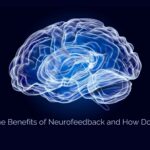There has long been a need for more effective and efficient treatment approaches to address the devastating impact mental health problems have across society. Public interest has been progressively piqued by a recent renewal in psychedelic research, as there is strong evidence that clinical use of psychedelic substances could help treat mental health problems such as chronic depression, anxiety, and Post-traumatic Stress Disorder more effectively than many existing treatments. The research findings have been promising to the extent that mainstream media is increasingly bringing psychedelics such as ketamine, psilocybin (Magic Mushrooms), and MDMA (Ecstasy) into the public eye while billing them as “miracle treatments” that could revolutionize the mental health field. While the excitement and buzz around psychedelic treatments make sense in many ways, it is also essential to have realistic expectations about what psychedelic treatments can achieve. They can be powerful tools but are not a “miracle cure.” Moreover, it is also important to have a realistic understanding of what work is required to achieve admittedly promising outcomes. Here are some ways to think about psychedelic treatments that can illuminate the incredible possibilities they hold while also appropriately balancing expectations about the process, experience, and outcomes.
Psychedelics work best in tandem with therapeutic support.

Psychedelics bring what we need but not necessarily what we expect.
Healing is not always a linear process and might not always take the course we expected. The human mind is immensely complex, and the ways it works to initiate its own healing are also complex. You might think you know what type of growth or healing you are after when you choose to use psychedelic medicines, but the process may play out much differently than you had imagined. For example, you might have a healing intention to improve your patience while parenting but find that your psychedelic experience is much more about dealing with anger or sadness from your childhood. There are many ways to interpret this outcome, but one idea is that to become a more patient parent, your brain determined that you must come to terms with your feelings of anger toward your parents. Although this work might seem somewhat distant from your original intention, there is a strong argument that the material that arose is deeply intertwined with the initial intention. If we can operate with the assumption that psychedelic experiences bring what we need instead of what we want, we can maximize the potential growth that comes from the work; even if we end up with an experience, we didn’t expect.
Psychedelics help open the paths, but we are the ones who must traverse them.

Psychedelic work is often about subtle changes rather than seismic overhaul.
When using psychedelic medicines for healing, the primary goal is often about change and growth. As mentioned, the research around psychedelics is promising, bolstered by the stories told by countless individuals who have found significant healing in their experiences. This obviously drives excitement for the medicines but sometimes gives the false impression that they magically create seismic shifts or mind-blowing breakthroughs for everyone that uses them. It is far more accurate to say that changes from psychedelic work are often subtle or nuanced. These changes, over time, can grow into some of the more massive changes that people might mistakenly be expecting right out of the gate. I think psychedelic work is somewhat analogous to plate tectonics and their relationship to the earth’s crust. Doing psychedelic work is like nudging the deeper “plates” of our psyche, which might not automatically translate to changes on the “surface” of our lives, at least not immediately. However, shifting the deeper “plates,” while seemingly subtle, will usually create a chain reaction that, over time, results in more recognizable movement or changes on the “surface” of our lives. It is crucial to understand that just because changes from psychedelic experiences might seem subtle, this does not necessarily mean that these changes are insignificant or will lead to less profound outcomes over the long haul.

Photo credits:
Photo by Anthony Tran on Unsplash
Photo by raquel raclette on Unsplash
Photo by Hillie Chan on Unsplash




